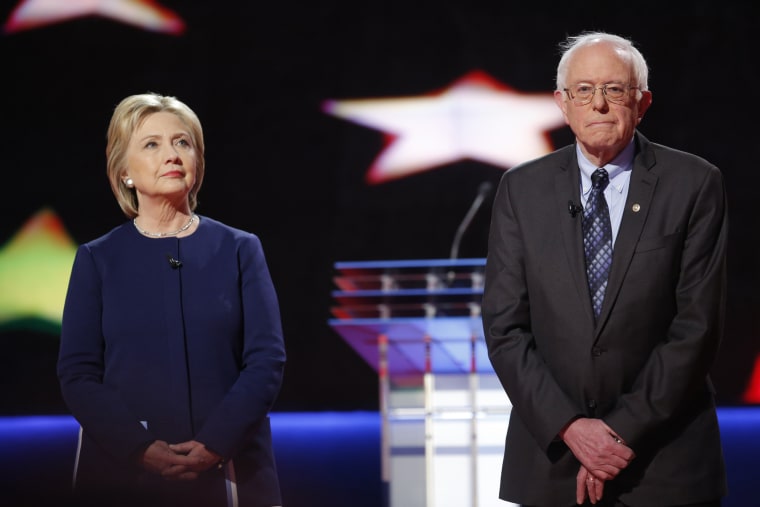After seven Democratic presidential candidate debates, some common threads become obvious. It's hard not to notice, for example, that both Hillary Clinton and Bernie Sanders are adept debaters who know how to use these events to their advantage. Both are relentlessly on message. Both have loyal and enthusiastic supporters who are absolutely convinced that their candidate won the debate beyond a shadow of a doubt.
But while it may be difficult to form a consensus about who won last night's debate in Flint, Michigan, identifying who lost is easy: the Republican presidential candidates.
Even die-hard political junkies can be forgiven for feeling a degree of debate fatigue. There have been 18 such gatherings this cycle -- 11 Republican and 7 Democratic -- and last night's event came just four days after the most recent GOP showdown. For those covering the election closely, it can be a bit much (especially realizing there are two more debates this week).
But the proximity of the Republican and Democratic debates also created an opportunity to compare not only the candidates against their intra-party rivals, but also each party's field of candidates against the other. And on this front, as the
Huffington Post's Jonathan Cohn
noted, the GOP has reason to feel embarrassed.
[T]he debate was also deeply substantive -- an argument between two seasoned politicians who have obviously given a lot of thought to the problems facing America, and what they would do about them. The contrast to the Republican debate from last week, with its juvenile insults, could not have been more stark. Instead of discussing penis length, Clinton and Sanders argued over the sizes of their respective infrastructure programs. In short, both Clinton and Sanders looked ready for prime time.
The point wasn't lost on Clinton, who
declared towards the end of last night's debate, "I just want to make one point. You know, we have our differences. And we get into vigorous debate about issues, but compare the substance of this debate with what you saw on the Republican stage last week."
Moments later, Sanders added, "You know, we are, if elected president, going to invest a lot of money into mental health. And when you watch these Republican debates, you know why we need to invest in that."
The audience applauded the observation. They had reason to be proud.
Those who watched last week's
cringe-worthy GOP debate know it represented a generational low point for the party. The school-yard bickering, the vulgar rhetoric, the superficial understanding of public policy, the casual falsehoods, the substance-free nonsense -- there's a reason Jamie Johnson, a former aide to Rick Perry's defunct presidential campaign,
said during the event, "My party is committing suicide on national television."
No Democrat said anything similar last night. There simply wasn't any reason to.
The substantive exchanges between Sanders and Clinton on a variety of issues -- Flint's water crisis, trade, the rescue of the auto industry, health care, reducing gun violence, fracking, the Export-Import Bank, et al -- certainly matter. I suspect the debate didn't change the broader trajectory of the Democratic race, though I also imagine the audience learned a few things.
But the end result was two candidates who obviously take their responsibilities and their platforms seriously, which is more than could be said about their rivals' debate from four days prior.
Postscript: I realize, of course, that the moment from last night that generated the most chatter was this tense exchange:
SANDERS: Well, I -- If you are talking about the Wall Street bailout, where some of your friends destroyed this economy... CLINTON: You know... SANDERS: Excuse me, I'm talking. CLINTON: If you're gonna talk, tell the whole story, Senator Sanders. SANDERS: Let me tell my story. You tell yours. CLINTON: I will.
Sanders has a cantankerous streak, which comes out from time to time, but if the nastiest exchange of the night is prefaced by "excuse me," I'm disinclined to make too big a fuss.
